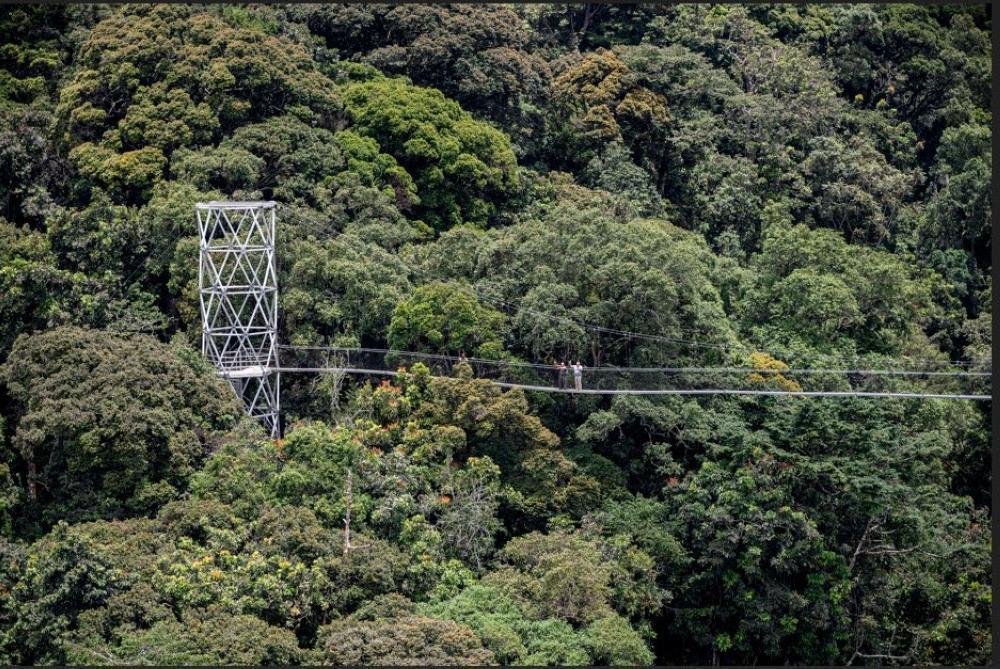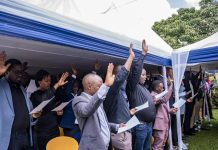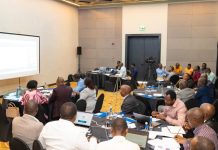David Pamba – Anthony Njeeh
Africa-Press – Rwanda. As Rwanda prepares to host the sixth World Congress on Agroforestry in 2025, from October 20 to 24, the nation is positioned not only as a beacon of environmental innovation but also as a model of financial transparency and accountability through its IPSAS adoption journey.
The congress is a global gathering of thought leaders, policymakers, and environmental advocates committed to sustainable land use and climate resilience. This event comes at a time when Rwanda is making significant strides in both environmental stewardship and public financial management. These two are seemingly distinct areas that are increasingly interconnected.
Agroforestry, as the integration of trees and shrubs into agricultural landscapes, is more than a land-use technique. As the world turns its attention to Kigali for this congress, Rwanda’s commitment to agroforestry is already evident in its ambitious plan to rehabilitate two million hectares of degraded land by 2030, primarily through agroforestry and reforestation. Some of these projects include Nyabarongo River Basin which will serve as a crucial water source and agricultural zone. This rehabilitation effort is spearheaded by Rwanda Forestry Authority (RFA), which has embraced the IPSAS 45 – PPE (Heritage Assets) and IPSAS 27 (Biological Assets) to report on environmental infrastructure and land improvements.
The Government of Rwanda is aligning its financial reporting with international standards like IPSAS. Rwanda ensures accurate valuation and reporting of forest assets and land rehabilitation efforts. This is crucial for policy planning, donor engagement, and long-term sustainability. The integration of IPSAS 45 PPE (Heritage Assets), IPSAS 27 (Biological Assets), and the forthcoming Natural Resources and Climate Disclosure standards illustrate Rwanda’s dedication to embedding transparency in environmental governance.
The congress will also focus on climate change adaptation and mitigation, areas where agroforestry plays a pivotal role. According to Green Earth, a leading carbon project developer and nature restoration company, Rwanda has issued over 2.25 million verified carbon credits. Rwanda’s carbon market is gaining global recognition as its climate-related disclosures are increasingly aligned with the IPSASB’s Sustainability Reporting Standard – SRS ED 1: Climate-related Disclosures. This enhances transparency in climate action and supports alignment with global frameworks.
Another central theme of the Congress is sustainable land management, an area where Rwanda continues to lead by example. Despite its compact geographic size, Rwanda has turned this into an advantage by demonstrating how strategic planning, community engagement, and environmental stewardship can transform landscapes and improve livelihoods. A shining example of this is Nyandungu Eco Park, a restored urban wetland that now serves as a thriving green space, showcasing the power of agroforestry and reforestation in action. Through initiatives like this, Rwanda has proven that effective land management is not about scale. The integration of IPSAS 45 – PPE in reporting these efforts ensures that progress is not only visible but verifiable an essential factor for attracting international support and investment.
While IPSAS is not the driver of Rwanda’s agroforestry success, embedding transparency into environmental governance through standards such as IPSAS 27, IPSAS 45, and the upcoming Natural Resources and Climate Disclosure standards will set precedence for how financial standards can support ecological goals. The upcoming Congress will be an opportunity to showcase this synergy and inspire other nations to follow suit.
As the world gathers in Kigali, the message is clear: sustainability thrives where accountability is rooted, and Rwanda stands ready to lead.
David Pamba is an Associate at PwC Rwanda (Government and Public Sector) while Anthony Njeeh is an Associate Director at PwC Rwanda (Government and Public Sector).
Source: The New Times
For More News And Analysis About Rwanda Follow Africa-Press






